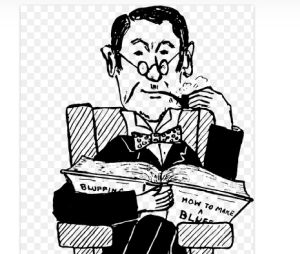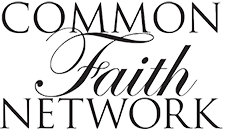
Hi Friend,
Once when Jesus had finished teaching a large crowd, he wanted to feed them, but the disciples had forgotten to bring food, except for one loaf of bread. As they were leaving Jesus warned them, “Be careful. Watch out for the yeast of the Pharisees and that of Herod.” (Mark 8:14-15)
The disciples thought Jesus was chastising them for not bringing enough bread. He reminded them that they had fed 5,000 with just a little bread and a few fish—and they had 12 baskets full of food left over. And they had fed 4,000 with food left over. He wasn’t talking about their neglect—God could overcome human flaws.
If Jesus was not referring to bread—if yeast was a metaphor for a more pernicious evil, what was the warning he intended? The danger of yeast is that a small amount can change the substance of a large loaf. The Pharisees were a small group of teachers who influenced larger groups of people. Herod was only one politician, but he influenced the laws that determine what the entire citizenry thinks about right and wrong.
As yeast is essential to make bread, teachers are essential to a civilized community—so are politicians. The weakness of each is that when their values are wrong their errors permeate our culture. The Pharisees taught biblical truths about God, but when they came face to face with God, their values were so different they did not know him—even when he raised people from the dead.
That thought came to mind while I was listening to an online lecture by a respected history professor. Two of my favorite professors teach classes I regularly monitor. I read their books and often quote them. I will not disclose their names because each has, in certain areas, succumbed to the leaven of academia. Both of these eminent historians are Christian. They each believe the Bible is a valid historical work. Yet, when secular history conflicts with the Bible they often doubt the Bible.
During one class the learned professor spoke convincingly about the world changing contribution made by the Hebrew religion with the introduction of monotheism. He described the birth of Moses and mentioned the murder of Hebrew children by the Egyptian people. Then he paused and said he doubted that the Egyptians killed the Israelite children in such a barbaric manner as described in the Bible. It was a shocking statement considering the plethora of examples of attempted genocide against the Jews as well as man’s willingness to murder millions of children each year through abortion. It just doesn’t seem hard to believe that Pharaoh, who worked slaves to death in the hot sun, would exterminate Jewish children. Except for one thing. When a person has bought into the leaven of academia, he tends to doubt the accuracy of the Bible.
My professor believes that God created the world, and that God is the source for his own life. Why would he have more confidence in the words of a human academician he has never met over the words of God? Why reject the words of the creator of the universe and trust a person who has never created anything?
The Apostle Paul had the same complaint against the Christians in Galatia. They had committed their lives to Jesus Christ, making serious personal sacrifices only to doubt Jesus when they were challenged by skeptics. This so frustrated Paul that he exclaimed in exasperation, “Oh, foolish Galatians. Who has bewitched you?” (Galatians 3:1)
I had a similar experience once when I attended the funeral of a friend. His grieving widow had a singer perform the song “Imagine,” to express her sentiments about the death of her husband. The song has a beautiful melody, but the words encourage people to “Imagine there’s no heaven…no hell below us.” The next verse asks listeners to imagine a world where there’s “no religion.” Why would a Christian envision a world without heaven where God has His throne? If there is no God, there is no hope for a resurrection. Then this is all a fairy tale and life has no meaning. Why imagine such a world?
John Lennon, who wrote the song, said “It is virtually the Communist Manifesto…But because it is sugarcoated it is accepted.” He went on to say, “Now I understand what you have to do. Put your political message across with a little honey.” Rolling Stone magazine says the song calls for the “the complete elimination of “organized religion.”
The most dangerous evil facing Christians today is the yeast of the culture that surrounds us. Jesus warned his disciples about the yeast of Herod. That warning is as valid today as it was 2,000 years ago. The best way to overcome the culture is to believe the Word of God.
Until next time,
Jim O’Brien
